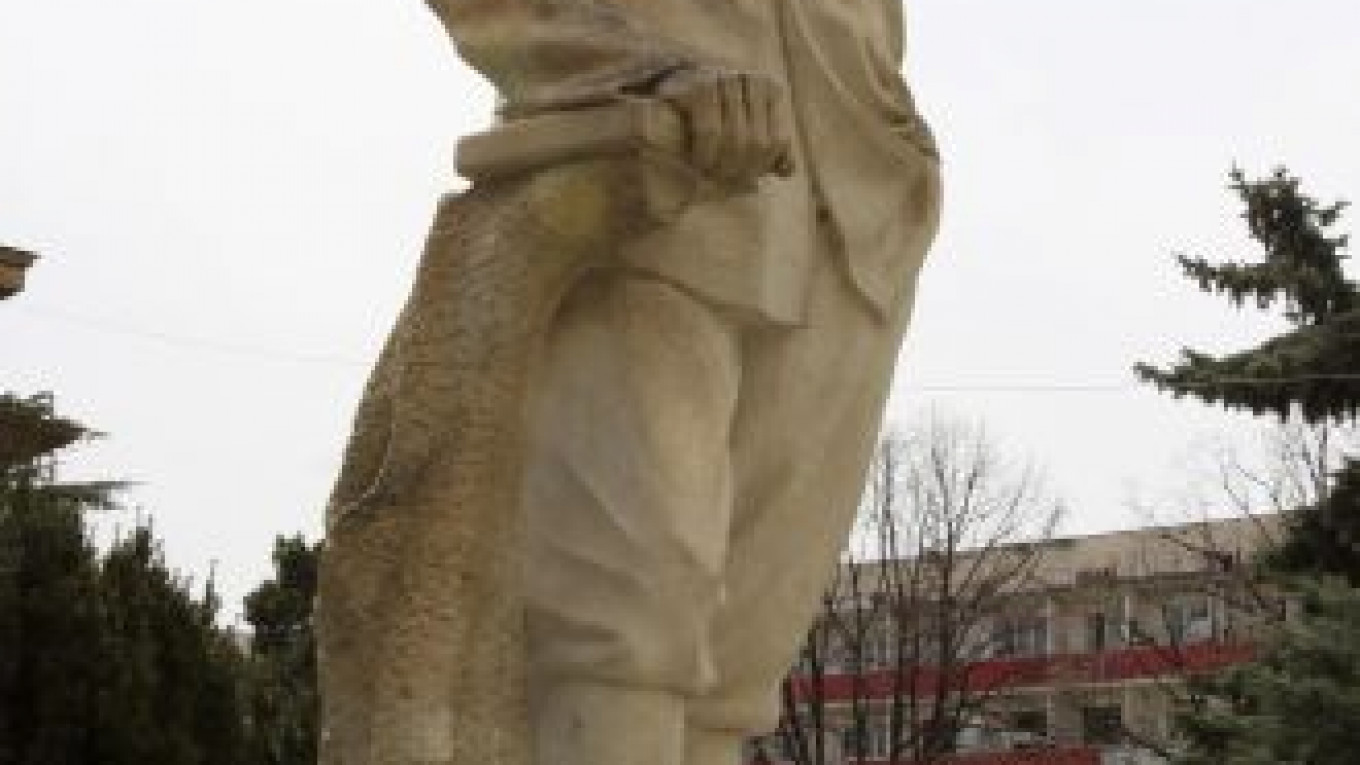GORI, Georgia — A museum that has honored Josef Stalin in Georgia since 1937 is being remodeled to exhibit the atrocities that were committed during the Soviet dictator's rule.
Georgian Culture Minister Nika Rurua said Monday that his country, which became independent in 1991, can no longer host a museum "glorifying the Soviet dictator."
Stalin was born Josef Dzhugashvili in the central Georgian town of Gori in 1879, and the museum opened here in 1937, at the height of purges that were later dubbed the Great Terror.
The gigantic museum includes the house where Stalin was born and some 47,000 exhibits, including his personal belongings and death masks.
It remained open despite the de-Stalinization campaign and denunciation of his personality cult declared by Stalin's successor, Nikita Khrushchev, in 1956.
But in post-Soviet Georgia, whose pro-Western government has been actively removing traces of the Soviet past, the museum seemed like an anachronism that attracted mostly foreign tourists and a few die-hard Communists.
Stalin, who died in 1953, remains a divisive issue in the former Soviet Union.
He is still revered by many who say he led the Soviet Union to victory in World War II and turned a struggling nation into a superpower.
Some of his most ardent supporters are still found in Gori.
"Stalin was a great man. He defeated Nazism," said Gori native Archil Dzhikvaishvili, 65. "As to the purges, they did take place, but there were significantly fewer victims than the number we hear today."
According to prominent Russian rights group Memorial, Stalin ordered the deaths of at least 724,000 people, while millions died as a result of the forced labor system in gulags, the Soviet prison system.
Millions of others, including entire ethnic groups such as Chechens and Volga Germans, were forcibly resettled, mostly to Soviet Central Asia.
Many of Stalin's victims were ethnic Georgians, including former Bolshevik Party comrades who witnessed his rise to power in the 1920s.
A Message from The Moscow Times:
Dear readers,
We are facing unprecedented challenges. Russia's Prosecutor General's Office has designated The Moscow Times as an "undesirable" organization, criminalizing our work and putting our staff at risk of prosecution. This follows our earlier unjust labeling as a "foreign agent."
These actions are direct attempts to silence independent journalism in Russia. The authorities claim our work "discredits the decisions of the Russian leadership." We see things differently: we strive to provide accurate, unbiased reporting on Russia.
We, the journalists of The Moscow Times, refuse to be silenced. But to continue our work, we need your help.
Your support, no matter how small, makes a world of difference. If you can, please support us monthly starting from just $2. It's quick to set up, and every contribution makes a significant impact.
By supporting The Moscow Times, you're defending open, independent journalism in the face of repression. Thank you for standing with us.
Remind me later.






